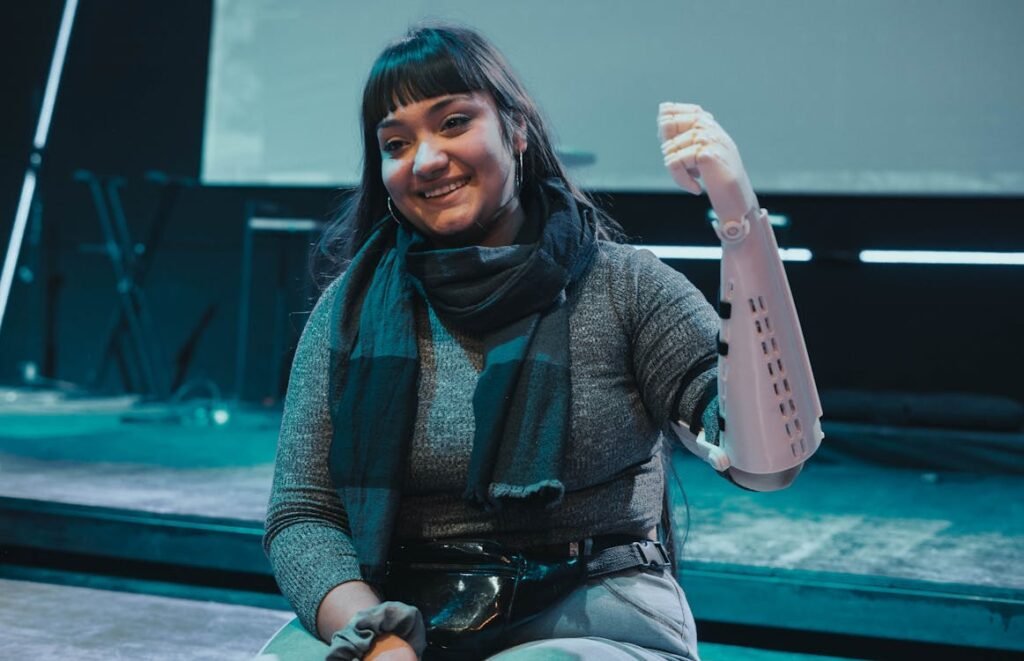The road to recovery after an amputation is more than just a physical journey; it’s deeply emotional, involving a range of feelings that can shape how you adapt and heal. While physical therapy helps rebuild strength and mobility, addressing the emotional side of rehabilitation is just as important. Learning to navigate this emotional journey is essential for rediscovering independence, rebuilding self-confidence, and finding new meaning in life.
This article explores the emotional aspects of rehabilitation after amputation, offering practical insights and strategies to help you or your loved one navigate this journey with strength and optimism.
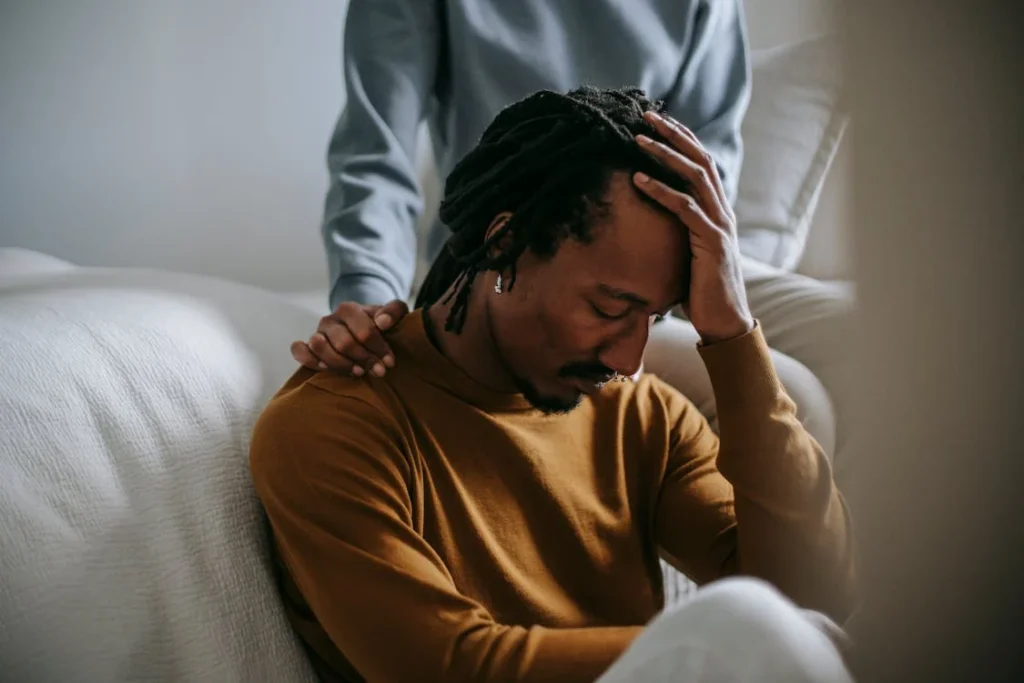
Understanding the Emotional Impact of Amputation
Grieving the Loss
Amputation is not just a physical procedure; it is a profound life event that can leave a significant emotional mark. The loss of a limb often triggers a period of grief, as individuals come to terms with the sudden and permanent change to their body.
This grief is not only about the physical loss but also the loss of certain abilities, routines, or even a sense of identity tied to the missing limb.
The grieving process may unfold in stages, starting with shock or disbelief, particularly in cases where the amputation was performed suddenly due to trauma or medical emergencies.
As the reality sets in, feelings of sadness, anger, or frustration may arise. These emotions are deeply personal and valid, reflecting the magnitude of the change and its impact on the individual’s life.
Acknowledging this grief is a critical step in healing. It allows individuals to process their emotions and begin finding ways to adapt to their new circumstances.
Professional counseling or open conversations with trusted loved ones can provide a safe space to explore these feelings and identify healthy coping mechanisms.
Navigating Fear and Uncertainty
Amputation often brings with it a sense of uncertainty about the future. The questions that arise—about mobility, independence, social interactions, or the use of a prosthetic—can create anxiety and apprehension.
This fear of the unknown can feel paralyzing at times, especially when combined with the physical and emotional challenges of recovery.
It’s important to recognize that fear is a natural response to change, especially when faced with unfamiliar circumstances. This fear is not a weakness but a reflection of the brain’s instinct to protect itself from potential risks.
Over time, as individuals gain clarity about their recovery plan and begin to experience progress, this fear often transforms into confidence and hope.
Rehabilitation professionals play a key role in alleviating these uncertainties. Their expertise and guidance help demystify the recovery process, providing reassurance that each challenge can be addressed with the right tools and strategies.
Building trust in this support system is an important step toward overcoming fear and embracing the journey ahead.
Self-Image and Identity
For many individuals, amputation profoundly affects their sense of self. The body is closely tied to identity, and losing a limb can lead to feelings of disconnect or altered self-image.
This emotional response is amplified in social situations, where individuals may feel self-conscious about how others perceive them.
The emotional weight of these changes can be heavy, but they also provide an opportunity to reshape and redefine identity. By focusing on strengths, achievements, and the aspects of self that remain unchanged, individuals can begin to rebuild their sense of who they are.
Rehabilitation often becomes a journey of self-discovery, where individuals uncover new talents, passions, or sources of pride that reaffirm their worth and capabilities.
Support from loved ones is invaluable during this period of adjustment. Encouragement, acceptance, and understanding from family and friends help create a nurturing environment where individuals feel empowered to embrace their evolving identity.
The Ripple Effect on Loved Ones
The emotional impact of amputation is not limited to the individual—it extends to their loved ones as well. Family members, partners, and close friends may experience their own feelings of grief, fear, or helplessness as they witness the challenges of recovery.
These emotions can create a complex dynamic, where both the individual and their support system are navigating uncharted territory.
Open communication is essential to managing these ripple effects. Sharing fears, hopes, and concerns helps strengthen bonds and fosters mutual understanding.
Family members who are actively involved in the rehabilitation process often gain a deeper appreciation for the individual’s resilience, which can inspire them to provide more effective support.
Professional guidance, such as family counseling, can also be helpful in addressing the emotional needs of everyone involved. By creating a shared sense of purpose and solidarity, families can become a source of strength and encouragement throughout the recovery journey.
Moving Toward Acceptance
Understanding the emotional impact of amputation is a gradual process, one that evolves as individuals progress through recovery. Acceptance doesn’t mean erasing grief or pretending that challenges don’t exist—it means finding a way to live fully despite them.
Acceptance often begins with small moments of progress: standing for the first time, mastering the use of a prosthetic, or realizing that life’s joys are still accessible.
These milestones serve as reminders that, while the road may be different than expected, it can still lead to fulfillment and growth.
At its core, the emotional impact of amputation reflects the depth of human resilience. It’s a journey of adapting, overcoming, and discovering new paths forward.
By addressing the emotional aspects of recovery with compassion and determination, individuals can find strength not just to rebuild their lives, but to reimagine them in ways that are empowering and inspiring.
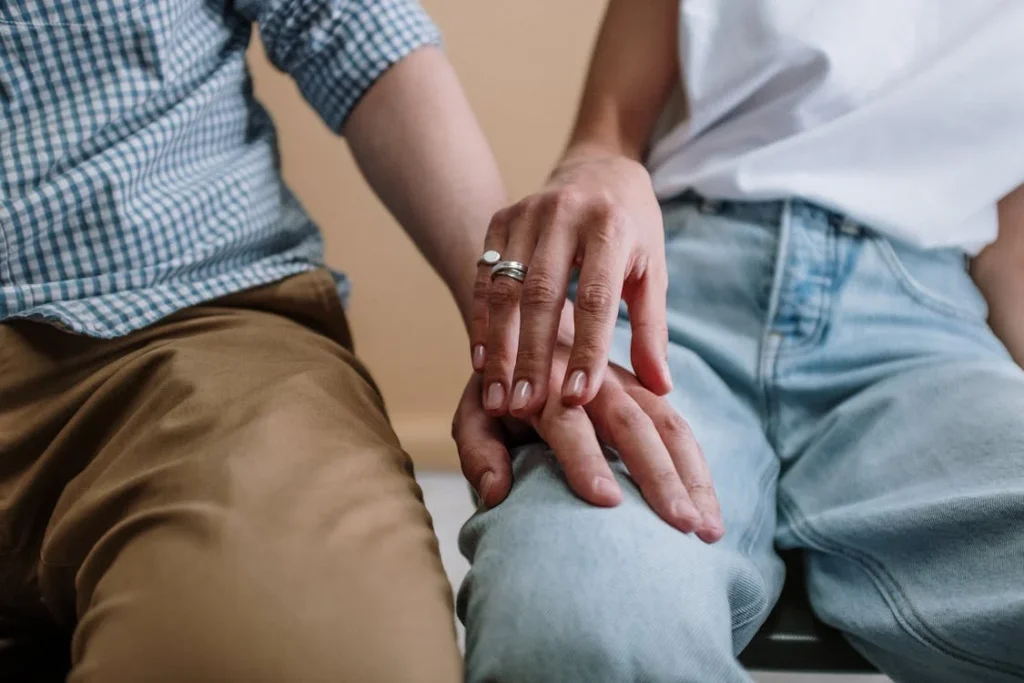
The Role of Emotional Resilience in Recovery
Understanding Emotional Resilience
Emotional resilience is the ability to adapt, recover, and grow stronger in the face of adversity. In the context of rehabilitation after an amputation, resilience is a critical component that helps individuals navigate the challenges of recovery, both physically and emotionally.
It is not about avoiding pain or discomfort but about finding the strength to move forward despite them.
Resilience is a skill that can be developed over time, and it serves as a powerful tool for overcoming setbacks, managing emotions, and maintaining motivation.
For individuals recovering from an amputation, building emotional resilience is about discovering inner reserves of strength and learning to approach obstacles with determination and hope.
Resilience as a Foundation for Progress
Recovery is a journey filled with highs and lows. Some days bring measurable progress, like standing unassisted or taking steps with a prosthetic.
Other days may bring frustration, fatigue, or feelings of discouragement. Emotional resilience provides the foundation needed to navigate these fluctuations without losing sight of long-term goals.
Resilient individuals are better equipped to view setbacks as temporary challenges rather than insurmountable barriers. For example, difficulties in mastering a particular movement or adapting to a prosthetic can be reframed as opportunities for growth and learning.
This shift in perspective creates a more positive outlook, allowing individuals to focus on solutions rather than limitations.
Therapists often emphasize the importance of resilience in the rehabilitation process. They encourage individuals to celebrate small victories, acknowledge progress, and maintain a forward-thinking mindset.
Each moment of success, no matter how minor, reinforces the belief that recovery is possible and worth pursuing.
Building Resilience Through Connection
Resilience is not developed in isolation; it is often strengthened through connections with others. Family, friends, and healthcare professionals provide essential emotional support, helping individuals feel less alone in their journey.
Conversations with loved ones can offer comfort and encouragement, while sharing fears or frustrations can lighten the emotional burden.
Support groups for amputees can also play a transformative role in building resilience. Connecting with others who have faced similar challenges fosters a sense of community and understanding.
Hearing stories of perseverance and triumph from peers can inspire hope and demonstrate that recovery is achievable. For many, these connections become a source of strength and motivation, reinforcing their ability to overcome obstacles.
The Role of Self-Belief
Emotional resilience is closely tied to self-belief—the conviction that you have the strength and capability to handle life’s challenges. After an amputation, self-doubt can creep in, particularly when faced with unfamiliar tasks or the fear of failure.
Building self-belief requires consistent effort and the willingness to embrace both successes and setbacks as part of the process.
For instance, learning to use a prosthetic may initially feel overwhelming. It takes time, patience, and practice to master movements that once came naturally.
Each step forward, no matter how small, reinforces the idea that you are capable of adapting and thriving. Over time, these moments of progress contribute to a stronger sense of self-confidence, creating a positive feedback loop that fuels resilience.
Therapists often encourage individuals to focus on what they can control, such as their effort, attitude, and commitment to recovery. By celebrating what has been achieved and setting realistic, attainable goals, individuals develop a sense of agency and empowerment.
Emotional Resilience and Long-Term Recovery
While resilience is essential in the early stages of recovery, it also plays a crucial role in maintaining progress over the long term.
Life after amputation continues to present challenges, whether it’s adapting to new environments, managing residual limb pain, or navigating changes in personal or professional life. Resilience provides the tools to face these challenges with confidence and determination.
Developing a resilient mindset also allows individuals to view their journey as an opportunity for growth and self-discovery. Many find that the process of overcoming adversity reveals strengths they didn’t know they had.
These qualities—patience, determination, creativity, and adaptability—extend far beyond recovery, shaping a life that is both fulfilling and meaningful.
Transforming Resilience Into Empowerment
Ultimately, emotional resilience is not just about enduring difficult moments—it’s about transforming them into sources of empowerment.
The journey of rehabilitation often leads individuals to discover new passions, achieve goals they once thought impossible, and inspire others with their strength.
Resilience becomes a driving force, helping them move beyond the limitations of amputation and toward a future filled with possibilities.
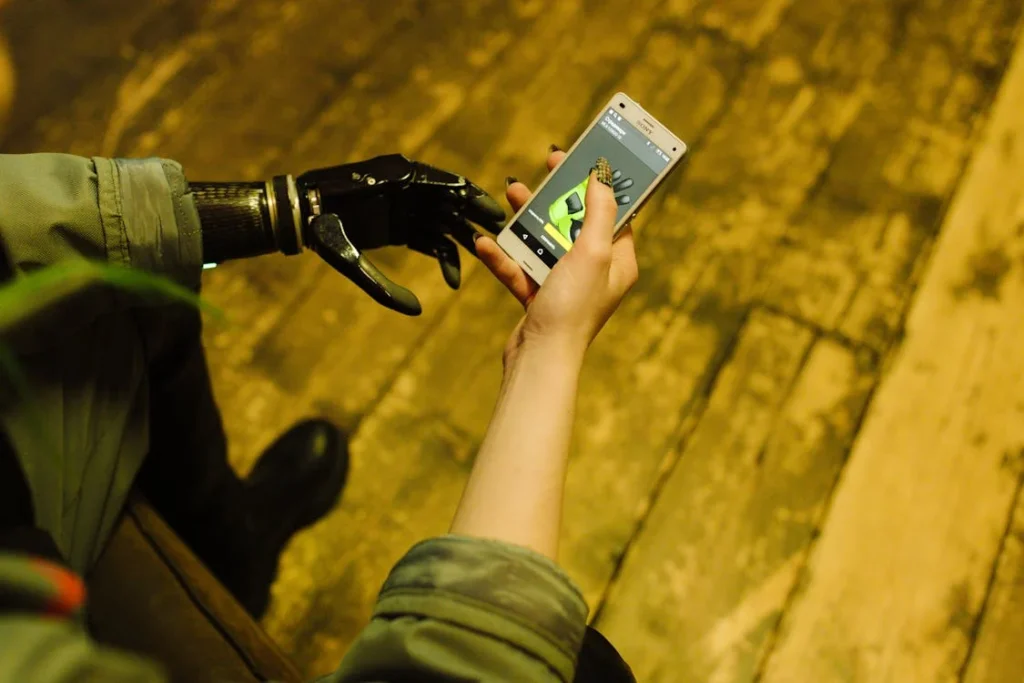
The Emotional Challenges of Using a Prosthetic
Adjusting to a New Reality
Using a prosthetic limb is often a pivotal moment in the recovery process, symbolizing a step toward regaining independence. However, the transition is not always easy. The prosthetic may feel unfamiliar or even uncomfortable at first, creating a mix of excitement and apprehension.
Learning to use a prosthetic requires patience, persistence, and a willingness to embrace new challenges. This process can sometimes evoke feelings of frustration or self-doubt, especially if progress feels slower than expected.
It’s important to remind yourself that adapting to a prosthetic is a journey in itself, one that requires time and consistent effort.
Emotional Barriers to Acceptance
Adapting to a prosthetic limb involves more than just physical adjustments—it requires emotional acceptance of this new reality. It’s common to experience a range of emotions, from reluctance to wear the prosthetic to frustration over its functionality.
For some, the prosthetic can serve as a reminder of their amputation, making it emotionally challenging to embrace.
Building a connection with your prosthetic takes time and a shift in perspective. Viewing the prosthetic not as a replacement but as a tool that enhances your abilities can make the adjustment process easier.
Small achievements, like mastering basic tasks or feeling more comfortable wearing the prosthetic, reinforce a sense of progress and belonging.
Celebrating Milestones
As you begin to use a prosthetic more effectively, each milestone becomes a cause for celebration. These moments, whether it’s taking your first steps, regaining the ability to hold an object, or performing daily activities, remind you of your capabilities and progress.
Sharing these milestones with loved ones or your rehabilitation team strengthens emotional resilience and reinforces a sense of accomplishment.
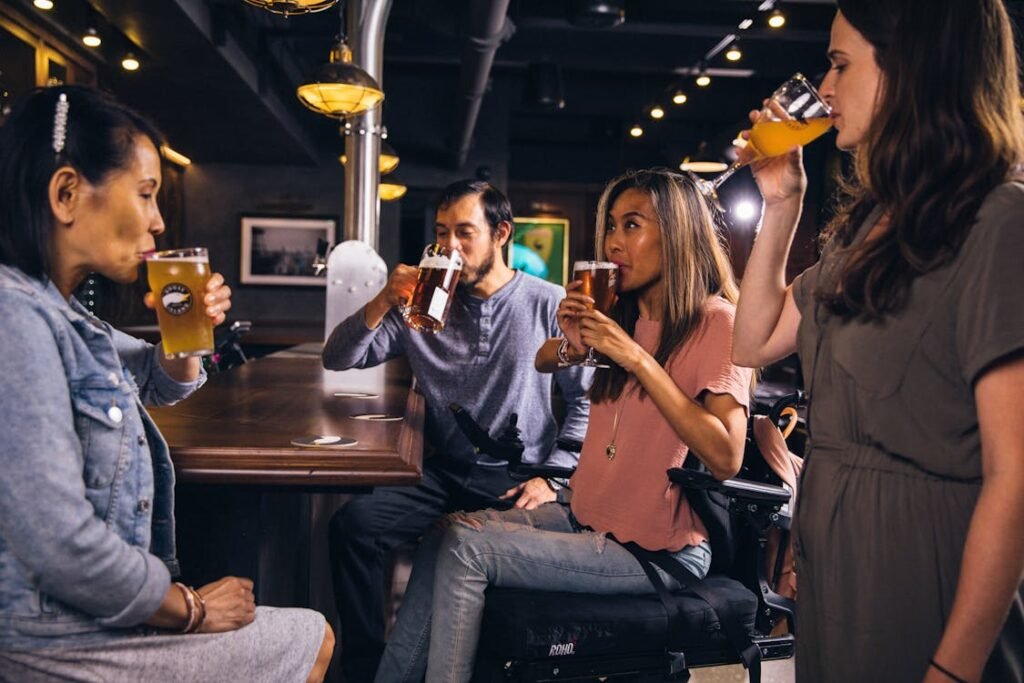
The Importance of Support Systems
Family and Friends as Emotional Anchors
The role of family and friends during rehabilitation cannot be overstated. Their presence provides not only physical assistance but also emotional stability.
Having someone to listen to your concerns, encourage you during difficult moments, or celebrate your achievements creates a sense of belonging and security.
Loved ones may also play an active role in your rehabilitation journey. Whether it’s helping with therapy exercises or adapting your home environment for easier mobility, their involvement demonstrates their commitment to your recovery.
These actions foster a deeper connection and remind you that you are not alone in this process.
Professional Emotional Support
While the support of loved ones is invaluable, professional emotional support adds another layer of guidance. Speaking with a counselor or psychologist can help you navigate complex feelings such as grief, anger, or anxiety.
These professionals provide a safe space for you to express your emotions and develop coping strategies tailored to your needs.
Support groups are also an excellent resource, offering the chance to connect with others who have experienced similar challenges. Hearing stories of resilience and recovery from peers can inspire hope and provide practical advice.
Sharing your own journey within these groups not only helps others but also reinforces your sense of empowerment and progress.
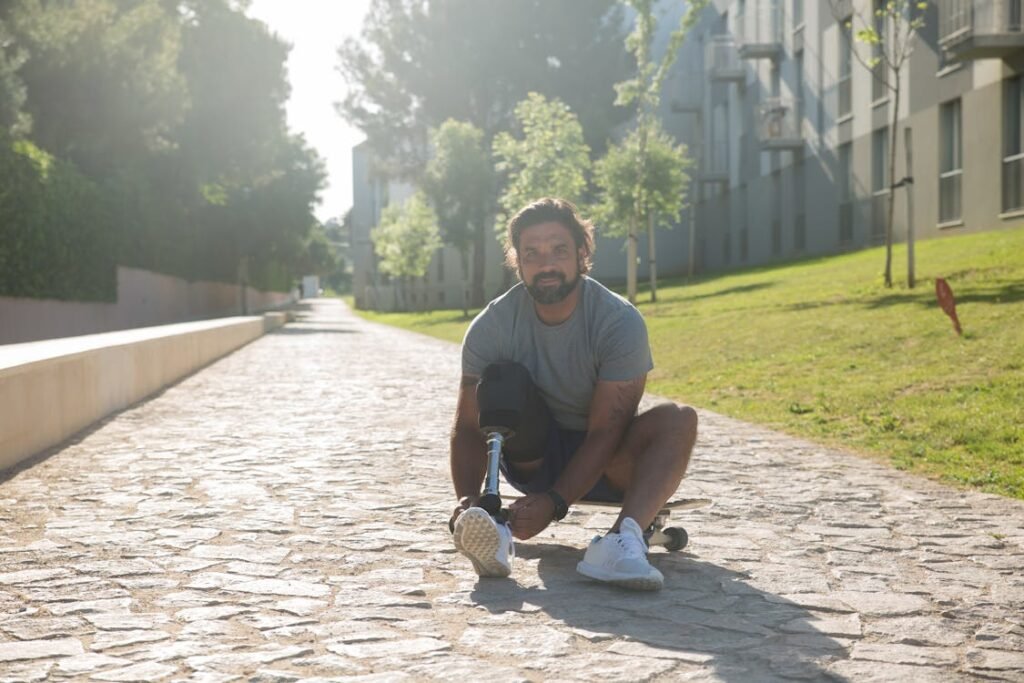
Redefining Identity After Amputation
Embracing a New Self
Amputation often prompts individuals to reassess their identity and sense of self. It’s natural to feel a disconnect between who you were before the amputation and who you are now.
This period of adjustment is an opportunity to embrace your new self, incorporating both your experiences and your aspirations into a renewed identity.
Rediscovering hobbies, passions, or interests that bring you joy is an important step in this process. Engaging in activities that make you feel capable and fulfilled reminds you that life after amputation can still be rich and meaningful.
Whether it’s returning to a beloved sport, exploring creative outlets, or pursuing new goals, these experiences reinforce the idea that your potential remains limitless.
Finding Purpose
For many individuals, the journey of rehabilitation becomes a source of purpose and strength. Some choose to share their experiences through advocacy, education, or mentoring, helping others navigate the challenges of amputation.
These acts of service not only provide a sense of fulfillment but also highlight the resilience and determination you’ve cultivated along the way.
Your new sense of purpose might also come from personal growth, such as achieving milestones in your recovery or building stronger relationships with loved ones.
Finding meaning in the journey creates a powerful sense of motivation and direction, helping you move forward with confidence and optimism.
Moving Beyond the Challenges
Transforming Setbacks into Growth
Setbacks are an inevitable part of any rehabilitation journey, but they also offer opportunities for growth and reflection. Every challenge you face—whether physical, emotional, or mental—teaches you something about your strength and adaptability.
By reframing setbacks as learning experiences, you cultivate a mindset of resilience and perseverance.
Moving beyond challenges also involves recognizing the progress you’ve made. Reflecting on how far you’ve come since the beginning of your journey fosters gratitude and pride in your accomplishments.
These moments of reflection reinforce the idea that each step, no matter how small, contributes to long-term success.
The Role of Positivity in Recovery
Maintaining a positive outlook during rehabilitation is a powerful tool for emotional and physical healing. Positivity does not mean ignoring challenges or dismissing difficult emotions; instead, it involves focusing on progress, possibilities, and solutions rather than obstacles.
A positive mindset helps you approach each day with determination and hope, even when the road ahead feels uncertain.
Cultivating positivity begins with small, intentional actions. Practicing gratitude by acknowledging the support of loved ones, the dedication of your rehabilitation team, or the achievements you’ve made fosters a sense of appreciation and optimism.
Surrounding yourself with uplifting influences, such as motivational stories or encouraging peers, reinforces this mindset and helps you stay focused on what you can achieve.
This positive approach not only enhances emotional resilience but also improves physical outcomes. Research shows that individuals with a positive outlook are more likely to engage actively in therapy, set ambitious goals, and recover more quickly.
Positivity creates a ripple effect, strengthening your confidence and empowering you to overcome obstacles.
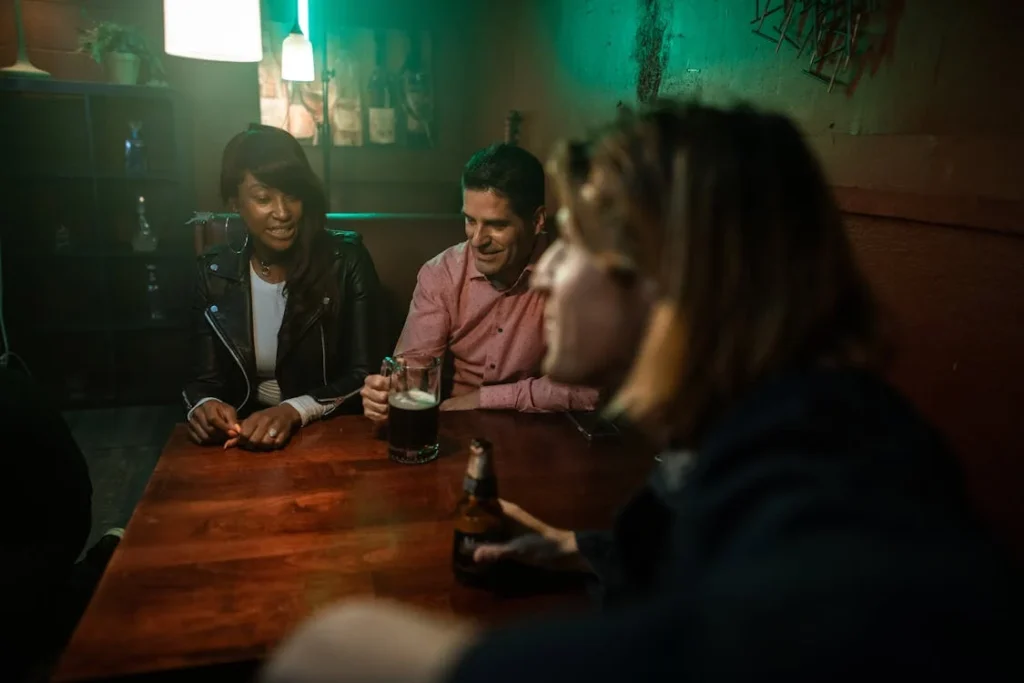
Reconnecting With the World
Navigating Social Interactions
Social reintegration is a key part of the emotional journey after an amputation. Interacting with others, whether in public spaces, work environments, or social gatherings, can feel daunting at first.
Questions, stares, or assumptions from others may cause discomfort or self-consciousness, but these moments also present opportunities to share your story and educate those around you.
Preparation can help ease these interactions. Practicing responses to common questions about your amputation or prosthetic use gives you the confidence to address curiosity in a way that feels authentic and empowering.
Over time, you may find that these conversations shift from being sources of discomfort to moments of connection and understanding.
It’s also important to set boundaries and prioritize your comfort. Deciding how much or how little you want to share about your journey allows you to maintain control over your narrative and focus on what makes you feel most at ease.
Embracing Community
Connecting with others who share similar experiences fosters a sense of belonging and solidarity.
Community support groups, both in-person and online, provide spaces where you can share insights, exchange advice, and celebrate victories with people who truly understand the challenges of rehabilitation.
These connections remind you that you are not alone and that many have walked the path you are now on.
Engaging with your local community through activities, events, or volunteer work is another way to rebuild confidence and establish meaningful relationships.
Becoming an active participant in community life reinforces your sense of purpose and shows you that your contributions are valued.
The Transformation of Rehabilitation
Discovering New Strengths
Rehabilitation after amputation is not just about recovering what was lost—it’s about discovering new strengths and possibilities. The process challenges you to push beyond your comfort zone, develop resilience, and adapt to change.
These experiences cultivate qualities such as patience, determination, and creativity, which extend far beyond the rehabilitation journey.
As you progress, you may find yourself accomplishing tasks or pursuing goals you once thought impossible. These moments of triumph serve as reminders of your growth and potential, inspiring you to continue exploring what you are capable of achieving.
Shaping a Future of Independence
Independence is often the ultimate goal of rehabilitation, and it represents more than just physical capabilities. It encompasses the freedom to live life on your terms, make your own choices, and engage fully with the world around you.
Every step you take toward independence reinforces your confidence and affirms that life after amputation can be both fulfilling and empowering.
The journey to independence also involves setting long-term goals that reflect your aspirations. Whether it’s returning to work, traveling, or pursuing hobbies, these goals provide direction and motivation.
Achieving them demonstrates that rehabilitation is not just about recovery—it’s about building a life that is rich, meaningful, and uniquely yours.
Conclusion
In conclusion, the emotional journey of rehabilitation after an amputation is one of resilience, growth, and rediscovery. It involves confronting challenges, embracing new realities, and finding strength in both personal determination and the support of loved ones and professionals. While the process may feel overwhelming at times, each step forward—whether physical or emotional—is a testament to your courage and adaptability.
Rehabilitation is not just about recovery; it’s about transformation. It’s an opportunity to rebuild confidence, rediscover purpose, and shape a life that reflects your unique abilities and aspirations.
At Robobionics, we are committed to supporting you throughout this journey. From advanced prosthetics to personalized guidance, we strive to empower you with the tools and resources needed to thrive. Remember, your journey is yours to define, and the possibilities ahead are endless. Reach out to us today to take the next step toward a brighter future.



